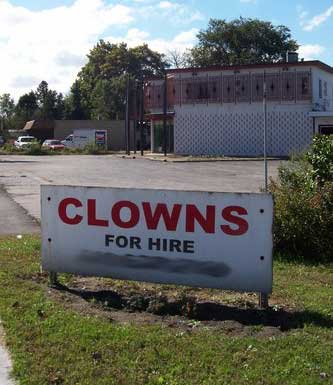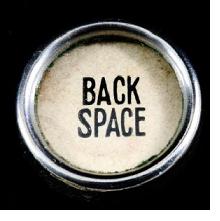
I spotted the above sign while driving back to Chicago from Toledo, Ohio and was inspired to write something for new editors who are about to put out a call for freelancers or writing staff. Writers, you should read this and take notes–knowing the mind of a potential editor is important to your survival in this business. As I am about to put out a call for new freelancers, this list is definitely top of mind. I dread posting those “freelancers wanted” ads, because I’ll get a flood of responses from people who belong in clown college rather than behind the keyboard. The three to five good results I get are worth the hassle, but when I am reading the slop, I don’t believe it.
I don’t view this so much as advice as sharing about how I personally do business. For some editors, this top ten won’t work, and that’s the nature of the biz, but I’m willing to bet at least 75% of those new to the editing game can find something useful here:
Top Ten Writer Traits Which Scream, “Don’t Hire Me”:
10. Misguided Cover Letters. Don’t tell me anything unrelated to the job ad–and don’t bother replying to an ad which seeks a specific type of writer unless you fit the bill. I once put out a job ad requesting replies only from writers who were also musicians. One cover letter in my inbox started out, “I am a voiceover artist.” That’s nice, buddy, but that’s NOT what I asked for. In case you’re wondering, the rest of the ad made it perfectly clear I was seeking musicians only, no other type of performers. The respondant clearly couldn’t follow instructions.
9. Clips From “Content” Websites. Sorry, kids, but if I see Associated Content, HubPages, or any other content mill material used as writing clips, it sends big warning flares off in my head. I’d rather see an unpublished clip directly related to my publication’s focus than some generalized crapola you took five minutes to write and edit before posting to the content mill. Submitting content clips screams “amateur” to me.
8. Clips From Blogs. If I am LOOKING for a blogger, I’ll ask for blog clips. If I need ARTICLES, blog clips don’t do me a damn bit of good when trying to evaluate the appropriate skills. Blogging is NOT article writing, and vice versa.
7. Submitting Fiction. Unless specifically asked for fiction clips, never include your short stories or novel excerpts when replying to a job ad. This is among the worst judgement errors you can make as it shows a fundamental lack of understanding about how the game is played. I have plenty of time for noobs and beginners as long as they show initiative and at least TRY to respond properly to a job ad or call for writers. Continue reading Confessions of an Editor: Top 10 “Don’t Hire Me” Traits →





